Jon Cronshaw's Blog, page 4
July 4, 2025
👑 Draft Done, Website Rebuild, and Embracing the Nobledark | Author Diary – July 4, 2025 📚🛠️
This week has been a busy and intense one! I’m thrilled to share that I’ve finished the draft of The Prince and the Fool (Ravenglass Legends, Book 4). It’s always a huge relief hitting that final chapter.
On top of that, I’ve been deep in website work—the book page platform I’d been using suddenly stopped working, so I rebuilt everything from scratch. You can now browse my updated book catalogue at joncronshaw.com/books.
I’ve also leaned further into my King of Nobledark rebrand, making sure everything aligns with the tone and themes of my work. It’s been a lot—but worth it.
July 2, 2025
Free Zombie Story Collection: Humans Versus Zombies Now Available
The dead walk.
But the real fight?
Staying human.
Humans Versus Zombies is a free collection of gritty, character-driven short stories set during the terrifying early days of a zombie outbreak.
And it all begins with Niamh’s Journey—a tense, emotional tale of survival, motherhood, and the impossible choices made when the world ends.
 Get your copy.Niamh’s Story: A Mother’s Fight for Survival
Get your copy.Niamh’s Story: A Mother’s Fight for SurvivalWhen the outbreak begins, Niamh finds herself alone in a crumbling apartment with a teething toddler and no help on the way.
Her partner is stranded on the other side of the country.
The streets are no longer safe.
And the living might be even more dangerous than the dead.
Armed only with a baseball bat and her instincts, Niamh must decide who to trust, what to risk, and how far she’s willing to go to protect her son.
Niamh’s Journey is a side story to the Punks Versus Zombies trilogy, offering a raw, intimate perspective on the collapse of society from the ground up.
What’s Inside Humans Versus Zombies?This collection blends post-apocalyptic tension with deeply human drama.
Each story stands alone, yet paints a larger picture of the outbreak’s first wave.
You’ll meet:
A terminally ill bus driver making one final run through infected streetsA pub full of desperate survivors clinging to routine and boozeA delivery driver caught between duty and escapeFamilies breaking apart under the strain of fear and infectionThis isn’t just about fighting zombies.
It’s about fighting for kindness. For dignity. For what makes us human in the face of the unthinkable.
Why Read Humans Versus Zombies?If you’re a fan of The Walking Dead, Black Mirror, or stories where the emotional stakes hit just as hard as the horror, this one’s for you.
It’s grim. It’s grounded. It’s free.
And it’s written by Jon Cronshaw, author of the upcoming Punks Versus Zombies trilogy—launching September 1st.
Get Your Free CopyYou can grab Humans Versus Zombies right now by signing up to Jon Cronshaw’s newsletter.
Not only will you get this gripping collection delivered to your inbox, you’ll also be the first to hear about exclusive deals, new releases, and behind-the-scenes insights.
 Download Your Free Zombie Collection Here.
Download Your Free Zombie Collection Here.
A free collection of zombie apocalypse short stories focusing on survival, emotional stakes, and the early days of the outbreak.
Is Niamh’s Journey part of a larger series?Yes. It’s a standalone side story connected to the Punks Versus Zombies trilogy by Jon Cronshaw.
Who is Humans Versus Zombies for?Readers who enjoy post-apocalyptic fiction with heart—fans of The Walking Dead, Black Mirror, and grounded zombie survival tales.
How can I get a copy?You can download it for free by signing up for the author’s newsletter here.
Niamh’s Joruney – 1.Niamh knelt beside the bathtub, her hands moving as she washed Sean, her three-year-old son. The water was only lukewarm—the ancient water heater in their third-floor Philadelphia apartment was temperamental at best—but Sean didn’t seem to mind. He splashed happily, babbling to himself as he played with his favourite toy boat.
“And then the brave pirate captain sailed across the wild, wild sea,” Niamh said. “He faced sea monsters and storms and all sorts of dangers, but he never gave up, because he knew that his crew was counting on him.”
Sean giggled, his chubby hands reaching for the boat. Niamh handed it to him, watching with a smile as he crashed it through the shallow water.
Bathtime was one of Niamh’s favourite parts of the day. It was a chance to slow down, to focus all her attention on her son and the simple joy of his imagination.
In these moments, she could almost forget the constant anxiety that gnawed at her—the worry over money, over Tommy’s long absences, over the state of the world that seemed to grow more chaotic and uncertain with each passing day.
With a final rinse, Niamh lifted Sean from the tub, wrapping him in a fluffy towel and peppering his damp hair with kisses.
In the bedroom, she helped him into his favourite pyjamas, the ones with the faded dinosaurs marching across the front. Sean had picked them out himself at the thrift store.
As she combed his hair, working gently through the tangles, Niamh hummed an old lullaby her mother used to sing to her.
Sean’s eyes were beginning to droop, but he fought against the pull of sleep.
“More story,” he said. “More pirates!”
Niamh smiled, settling him into his small bed and tucking the covers around him. “Alright, my love. One more story, and then it’s off to dreamland for you.”
She spun a tale of daring deeds and narrow escapes, her voice rising and falling with the rhythm of the story. Sean listened, his eyes wide in the soft glow of the nightlight.
When the story was finished, Niamh kissed his forehead, whispering a goodnight. She lingered for a moment, watching the slow rise and fall of his chest.
Then, with a sigh, she pushed herself to her feet and set about tidying the apartment. She gathered Sean’s scattered toys, stacking them in their designated corner. She wiped down the bathtub and hung the damp towels to dry.
When the apartment was clean and Sean was settled, she could almost pretend that everything was normal.
A quick glance at the clock on the wall reminded her that it was almost time for her nightly call with Tommy.
Niamh felt a flutter of anticipation in her stomach, mixed with a now-familiar pang of longing.
These calls were a lifeline, a chance to connect with her partner across the miles that separated them.
But they were also a reminder of how much she missed him, of how badly she wished he was here with her and Sean, instead of out on the road.
Sean burst into the living room, his plastic guitar clutched in his hands. “Mommy, look!” He strummed the brightly coloured strings, producing a series of tinny, off-key notes.
“Wow, Sean! You’re really rocking out, aren’t you?”
Sean nodded. “Just like Daddy!”
Before she could respond, her phone buzzed.
With a swipe, Tommy’s face filled the screen.
She smiled at him. “Hey, how was it?”
“Killed it. The pit was insane,” Tommy said, his voice full of the usual post-gig energy.
“Sounds like it was wild. I bet you had them eating out of your hand.”
Tommy grinned, but before he could reply, Sean leapt into the frame, waving his guitar in front of the camera.
“Daddy! Look at me! I’m playing just like you!”
Tommy laughed.
“He’s been shredding all day. Little guy misses his dad.”
There was a moment of silence. Niamh saw the way Tommy’s smile faltered, how his eyes clouded with that familiar sadness. It was the same feeling that tugged at her heart every time she had to tell Sean that Daddy wouldn’t be home tonight.
“I miss you both too,” Tommy said, his voice quieter.
Niamh wanted to reach through the screen, to touch him, to feel his warmth beside her. But all she could do was smile, trying to keep the mood light, for Sean’s sake, if not her own. “Don’t worry,. We’re saving all the real fun for when you get back.”
Tommy’s smile returned.
They chatted a bit more, talking about the little things—how Sean had finally managed to eat his broccoli tonight without a fuss, how the weather had turned cooler, bringing with it the promise of autumn. But as always, the call had to end.
“Alright, my love, it’s bedtime for Sean.”
Tommy nodded. “Goodnight, Niamh. Kiss the little man for me.”
“I will. Goodnight, Tommy. Love you.”
“You too.”
She lingered for a second after the call ended, staring at the blank screen. Then, with a sigh, she tucked the phone away, turning to where Sean was now sitting, strumming the guitar.
“Come on, rock star.” She scooped him up into her arms. “Time for bed.”
As she carried him back to his room, Sean’s head rested against her shoulder, his small body warm and heavy with sleep. She tucked him in once more, brushing a kiss over his forehead. “Goodnight, my love. Daddy loves you. I love you. Everything’s going to be alright.”
She slipped out of the room, pulling the door closed behind her.
In the quiet of the apartment, her loneliness felt like a physical presence. She closed her eyes, breathing deeply through the ache in her chest.
This was her life now—long days and lonely nights. But she had Sean, and she had Tommy, even if he was far away. They were her anchor, her reason to keep going, to keep fighting for the future they had dreamed of together
She settled onto the couch, allowing herself a moment to unwind after the long day. Sean was asleep, the apartment was quiet, and she had a precious few hours to herself.
She grabbed her phone and leaned back into the cushions, scrolling through her social media feed out of habit.
Friends shared photos of their kids, their pets, their meals. Mundane status updates about work. A few memes made her chuckle.
A fellow nurse shared a post: “Violent Attacks Reported in Downtown Philadelphia – Police Suspect Drug-Related Cause”
She clicked on the link and scanned the article. It was vague on details, but the gist was clear – there had been a series of brutal, seemingly random assaults in the heart of the city, leaving several people critically injured.
Niamh shook her head. This was Philly, after all. Violence was nothing new, especially in certain parts of the city..
She kept scrolling. More and more posts about the attacks, some sharing eyewitness videos, others just expressing shock and fear.
Niamh watched a few seconds of one shaky clip, wincing at the screams and the confusion before she swiped it away.
Another headline caught her eye, this one from a national news outlet. “CDC Investigating Possible Viral Outbreak Linked to Recent Violence.”
Reports of similar incidents in New York, Chicago, Los Angeles.
Videos of people attacking each other in broad daylight, their movements erratic, almost inhuman.
Frantic status updates from friends and family in other cities, warning people to stay inside, to lock their doors.
Niamh’s mouth went dry, her fingers trembling as she kept scrolling, kept reading.
This couldn’t be real. It had to be some kind of hoax, or a misunderstanding.
Things like this simply didn’t happen.
Niamh stumbled upon a live video from a local news station, the feed choppy and pixelated. “…confirmed reports of infected individuals exhibiting extremely violent, erratic behaviour…advising all residents to shelter in place… “
The video cut out, the screen going black.
Niamh stared at it, her breath coming in shallow gasps.
What would she do if this thing, this infection or whatever it was, reached their neighbourhood?
How would she protect Sean?
Niamh shot to her feet. She needed to do something, to prepare somehow.
Her nursing training kicked into gear, her mind racing through the supplies they had on hand, the precautions they could take.
She strode to the kitchen, yanking open the fridge and scanning its contents.
They had enough food for a few days, maybe a week if they rationed carefully. She filled every container she could find with water, her hands shaking as she worked.
She dug out her first aid kit from the back of the closet. Bandages, antiseptic, a few basic medications. Not much, but it was better than nothing.
As she worked, she kept one eye on her phone, watching the news updates scroll by with increasing dread.
The situation was escalating rapidly, the number of reported attacks growing by the minute.
Niamh’s heart clenched as she saw a familiar street flash across the screen, just a few blocks from their building.
She recognised the storefronts, the graffiti on the walls.
People ran and screamed.
Cars lay overturned and burning.
Dark figures lurched and lunged through the smoke.
She turned off the phone, unable to watch.
Her mind was reeling, trying to process it all.
She braced herself against the kitchen counter, her knuckles white as she gripped the edge.
She needed to stay calm, to think clearly.
Panic would only make things worse, would only put her and Sean at greater risk.
She closed her eyes, forcing herself to take deep, steady breaths.
An image of Tommy rose in her mind. His warm brown eyes, the curve of his smile, the strength of his arms around her.
She reached for her phone and tried to call Tommy, but the network was jammed.
With a shaking hand, she put the phone down.
She moved through the apartment, checking locks, blocking windows.
All the while, her mind raced ahead, spinning out scenarios and contingencies.
If the power went out, they had flashlights and batteries.
If the water stopped running, they had the jugs and bottles she had filled.
If they had to leave…
She shied away from that thought, not wanting to contemplate the possibility of abandoning their home.
She worked until her body ached and her eyes burned from exhaustion.
Only then did she allow herself to sink back onto the couch, her emergency preparations as complete as she could make them.
The apartment was quiet, the silence broken only by the soft ticking of the clock on the wall and the distant wail of sirens outside.
She hugged her knees to her chest, suddenly feeling very small and very alone.
She didn’t know what the next hours would bring, let alone the next days or weeks.
But she was alive, and Sean was alive, and for now, that would have to be enough.
continue reading.Punks Versus Zombies Launches September 1 – Pre-order Now!
Would you fight through the apocalypse to get back to the people you love?
The wait is almost over.
Jon Cronshaw’s Punks Versus Zombies trilogy is set to launch on September 1, 2025—and you can pre-order all three books right now on Kindle.
Three Books. One Relentless Journey.Punks Versus ZombiesUndead AnarchyPunk’s Not DeadThis isn’t just another zombie story. It’s a high-stakes, emotional ride through a collapsing world—told through the eyes of a punk guitarist trying to get back to the people who matter most.
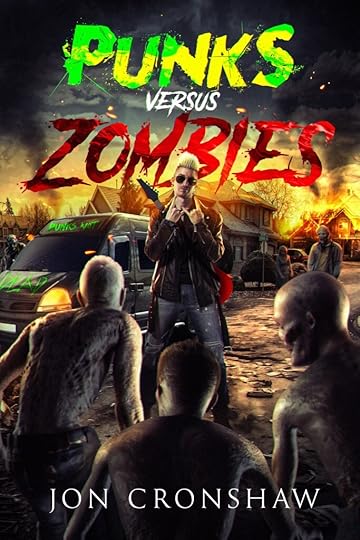 When the World Ends, You Don’t Give Up—You Go Home.
When the World Ends, You Don’t Give Up—You Go Home.Mid-gig, the outbreak begins.
Tommy is thousands of miles from home, with nothing but a broken van, a crumbling band, and a desperate drive to reach his girlfriend and son in Philadelphia.
Zombies flood the streets.
Civilisation turns feral overnight.
And every choice could be his last.
What follows is a brutal road trip through chaos, where survival is a question of grit, loyalty, and refusing to quit.
order now.Why Read Punks Versus Zombies?This trilogy brings together visceral zombie horror, found family, and raw punk energy.
If you enjoy:
Survival stories with heart and biteBands falling apart as the world does the sameEmotional journeys through crumbling citiesThe question: What would you risk to go home?Then this is your next must-read.
It’s perfect for fans of The Walking Dead, Dawn of the Dead, and Train to Busan—but with a mohawk, a battered guitar case, and a whole lot more grit.
Pre-order the Trilogy NowAll three books are available to pre-order today on Kindle:
 Punks Versus Zombies – Just 99p/99c for launch
Punks Versus Zombies – Just 99p/99c for launch Undead Anarchy – Book Two
Undead Anarchy – Book Two Punk’s Not Dead – The explosive finale
Punk’s Not Dead – The explosive finale
Secure your copies now and have the full trilogy ready to devour the moment it drops.
September 1. Be ready.
The apocalypse doesn’t wait.
June 27, 2025
🐉 Draft Progress, Zombies Incoming, and a Night in Blackpool | Author Diary – June 27, 2025 📚🧟♂️
This week, I’ve made solid progress on The Prince and the Fool (Ravenglass Legends, Book 4), hitting the 75% mark in the draft. The story’s really coming together now as I push toward the final act.
I’m also busy getting Punks Versus Zombies ready for launch on Kindle, September 1, 2025. It’s up for pre-order now, so lock in your copy for a wild post-apocalyptic ride!
On a personal note, I had a fun night away in Blackpool—a much-needed change of scene that’s helped recharge the creative batteries.
Pre-order punks versus zombies.The post 🐉 Draft Progress, Zombies Incoming, and a Night in Blackpool | Author Diary – June 27, 2025 📚🧟♂️ appeared first on Jon Cronshaw - The King of Nobledark.
The Best Zombie Books You Need to Read in 2025
If you’re looking for the best zombie books to add to your reading list, you’re in the right place.
Whether you’re a horror fan, a post-apocalyptic enthusiast, or just love a gripping survival tale, zombie fiction offers some of the most thrilling and thought-provoking stories in the genre.
This list gathers the essential zombie reads—stories that go beyond brain-munching and body counts to show us what it means to be human when the world falls apart.
The appeal of zombie literature isn’t just the gore or the fear of the infected.
It’s the pressure-cooker situations.
The moral dilemmas.
The fight to hold on to decency in a world where the rules have changed.
The best zombie novels aren’t about the dead—they’re about the living.
The desperate parents, the hardened survivors, the unlikely heroes trying to protect what little remains.
If you’re searching for the greatest zombie books of all time, modern classics, or underrated gems, this guide has you covered.
Let’s get stuck in.
Punks Versus Zombies by Jon Cronshaw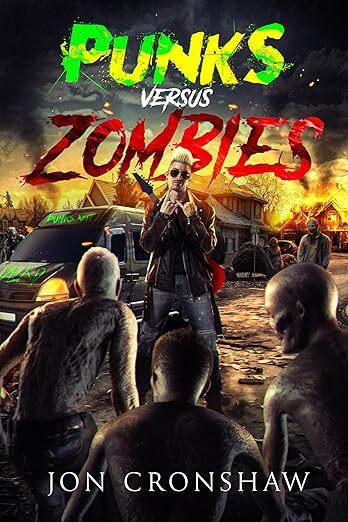
When the zombie outbreak hits mid-gig, punk guitarist Tommy is stranded 3,000 miles from home.
With his band falling apart and the roads swarming, he sets out to reach his girlfriend and son in Philadelphia—if they’re still alive.
Armed with a battered van and raw determination, Tommy fights through a dying America.
Punks Versus Zombies is a tense, emotional survival story packed with punk energy, family stakes, and relentless danger.
Perfect for fans of The Walking Dead and Train to Busan, this is zombie fiction with heart—and teeth.
get your copy.Mountain Man by Keith C. Blackmore
Two years after the fall, Gus Berry survives alone in a mountain stronghold—armed with a shotgun, a samurai bat, and a hangover.
Each supply run into the frozen, undead-infested suburbs below could be his last.
But isolation doesn’t last forever.
When Gus meets another survivor, he learns the true threat may not be the dead, but the living.
Mountain Man is a gritty, darkly funny survival horror novel with sharp character work and brutal tension.
Fans of The Last of Us and I Am Legend will find this post-apocalyptic tale both chilling and oddly relatable.
get your copy.Outbreak by Joshua C. Chadd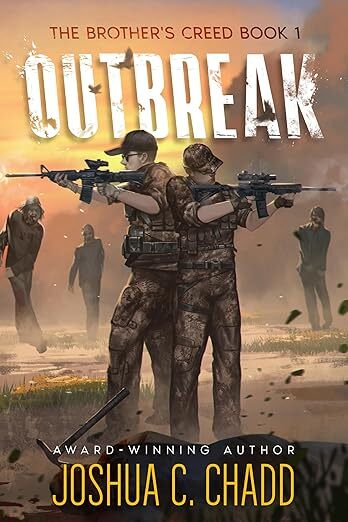
When the dead rise, two brothers set out on a desperate mission to rescue their parents in Nebraska—armed with a plan, but no real idea what they’re up against.
Meanwhile, Emmett Wolfe races to save his daughter and ex-wife as the infection spreads across America.
Outbreak is a fast-paced, emotionally charged zombie novel that explores how far people will go for family when the world collapses.
With survival plans falling apart and danger around every corner, it’s a gripping start to a series perfect for fans of The Walking Dead and Zombie Fallout.
get your copy.Zombie Fallout by Mark Tufo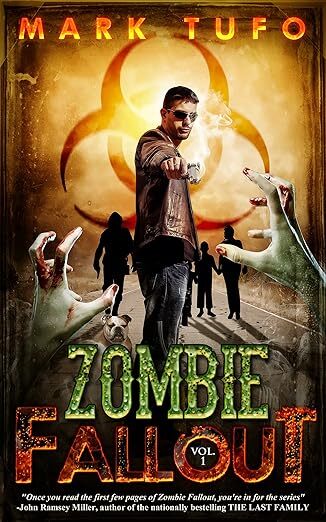
A rushed vaccine. A deadly flu. Then the dead got back up.
Zombie Fallout kicks off Mark Tufo’s long-running series with a blend of horror, action, and dark comedy, following self-declared survivalist Michael Talbot as he fights to protect his family in a world gone mad.
As the undead rise, Mike relies on sarcasm, instincts, and sheer stubbornness to keep those he loves alive.
But the virus hides darker secrets—some beyond explanation.
Fast-paced, funny, and surprisingly heartfelt, this is a cult favourite among zombie fans.
Perfect for readers who enjoy apocalyptic chaos with a side of wisecracks.
get your copy.Zombie Rules by David Achord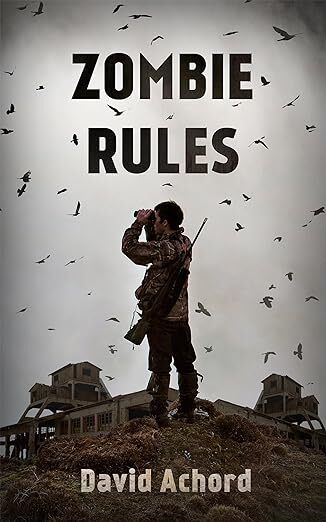
Zach Gunderson thought his life couldn’t get worse—then came the zombies.
Guided by Rick, a grizzled Vietnam vet and doomsday prepper, Zach retreats to a remote farm just as society collapses.
But surviving the undead is only the beginning.
As the plague spreads, the real threat emerges: desperate people willing to do anything to stay alive.
Zombie Rules blends gritty survival, sharp dialogue, and a coming-of-age arc with real stakes.
It’s a gripping start to a series where the rules have changed—and only the ruthless endure.
Perfect for fans of grounded, character-led zombie fiction.
get your copy.Day by Day Armageddon by J.L. Bourne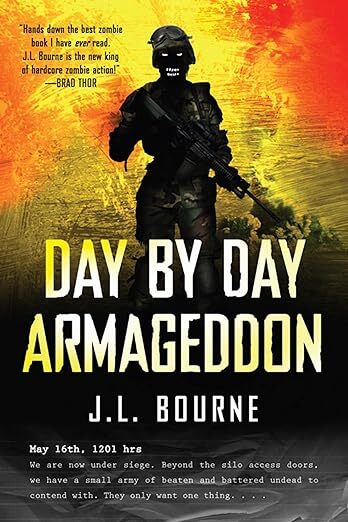
Told through the handwritten journal of a lone survivor, Day by Day Armageddon offers an intimate, chilling account of one man’s fight to stay alive as the world falls to the undead.
With every entry, the tension builds.
From the first signs of collapse to the claustrophobic horror of a besieged bunker, the narrator must make brutal choices—each one a line between survival and damnation.
Written in a stark, immediate style, this is zombie horror at its most personal and relentless.
A must-read for fans of military survival and end-of-the-world realism.
get your copy.The Apocalypse by Peter Meredith
When greed, terror, and pure bad luck collide, civilisation collapses—and the dead rise.
The Apocalypse, the first book in The Undead World series, throws readers into a relentless viral nightmare where only the lucky, the ruthless, or the unbreakable survive.
Told through a cast of gritty, compelling characters, this is zombie fiction at full tilt—fast-paced, brutal, and unflinching.
With no heroes, no safety, and no guarantees, every page is a fight for survival.
Perfect for readers who want high-stakes action, raw emotion, and a story that doesn’t flinch from the darkest corners of the undead world.
get your copy.Dark Recollections by Chris Philbrook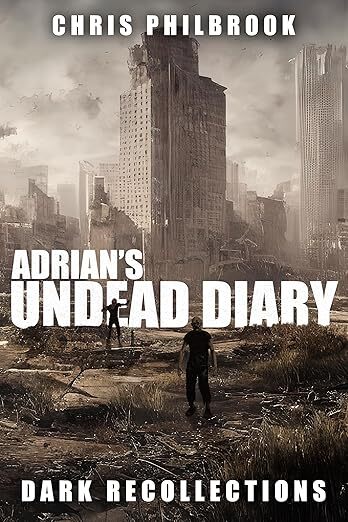
When the world ends, Adrian Ring starts talking—to his laptop.
In Dark Recollections, the first entry in Adrian’s Undead Diary, Adrian documents his day-to-day struggle to survive the zombie apocalypse while grappling with guilt, loneliness, and the threat of unhinged survivors.
He rescues his cat, shoots his mum, and holes up in an abandoned prep school as the world outside burns.
Told in journal format, this gripping, character-focused series blends dark humour, emotional depth, and brutal action.
Perfect for fans who like their zombie fiction with heart, honesty, and a body count.
get your copy.Z-Burbia by Jake Bible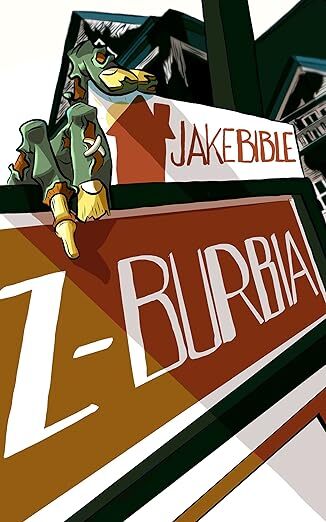
When zombies hit the suburbs, most people panic.
In Whispering Pines, they call the Home Owners Association.
Z-Burbia throws you into a post-apocalyptic nightmare laced with gore, grit, and relentless sarcasm.
Jace Stanford just wants to keep his family alive—but between flesh-eating hordes and the petty tyranny of HOA rules, survival’s never simple.
With cannibals, chaos, and more bad jokes than bullets, this series is zombie horror with a twisted suburban spin.
Perfect for readers who like their apocalypse brutal, bloody, and bizarrely funny.
get your copy.The Remaining by D.J. Molles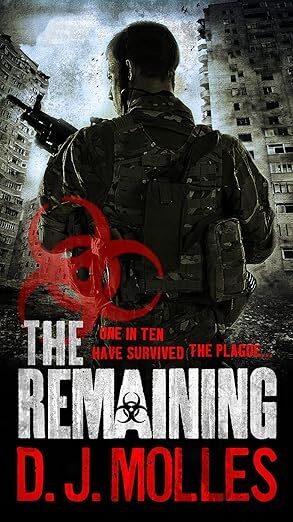
Hidden in a bunker beneath the ruins of America, one soldier receives his final orders: survive, rescue, rebuild.
In The Remaining, a deadly bacterium has turned most of the population into savage, hyper-violent predators.
Now it’s time for Captain Lee Harden to leave his shelter and face the chaos above.
Armed with military training and a mission that may be humanity’s last hope, Lee steps into a world where survival is war—and every decision counts.
Fast, tense, and unflinchingly brutal, this is a must-read for fans of military thrillers and post-apocalyptic survival.
get your copy.The Prisoner of the Dead by Megan Mackie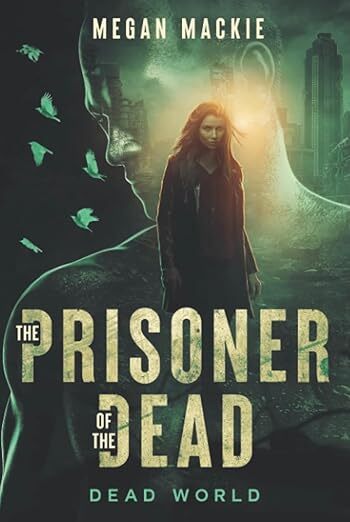
In a world overrun by the undead, freedom is rare—and hope, even rarer.
After a brutal killing, Baron ends up imprisoned and bound to Thalia, a mysterious woman with knowledge that could end the zombie plague forever.
The infection, she reveals, is part of a repeating cycle—one she may be able to break.
But survival won’t come easy.
The Prisoner of the Dead blends post-apocalyptic grit with speculative intrigue, offering a fresh twist on zombie lore through layered characters and high-stakes mystery.
Ideal for readers who crave depth, danger, and a glimmer of redemption.
get your copy.Slow Burn: Zero Day by Bobby Adair
Zed Zane just wanted to borrow rent money.
Instead, he walked into a house full of blood and a world beginning to collapse.
Bitten during a brutal attack by his infected stepfather, Zed is arrested for murder—until society crumbles and he’s forced back onto the streets.
Now, with the infection in his veins, he’s stuck between two worlds: feared by the living, hunted by the dead.
Slow Burn: Zero Day delivers a gritty, fast-paced zombie survival story with a unique twist—what if the infection doesn’t kill you, but changes you?
Perfect for fans of flawed heroes and slow-building dread.
get your copy.This Rotten World by Jacy Morris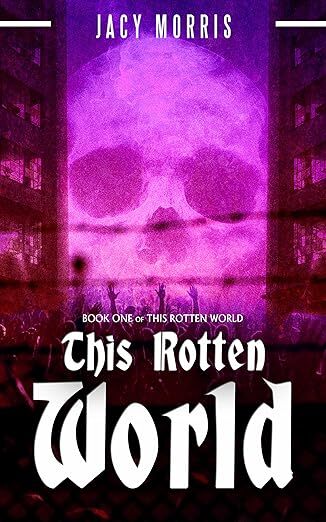
The end doesn’t come quietly.
Set in Portland, Oregon, This Rotten World drops readers into the chaos of the first night of the outbreak—when everything unravels and no one is safe.
Told through the eyes of eight ordinary people, this novel captures the raw panic, violence, and confusion of society’s collapse in real time.
Forget time jumps and tidy explanations—this story lives in the downfall, dragging you through every scream, every bite, every brutal turn.
Gritty, unflinching, and immersive, it’s perfect for readers who want to feel the outbreak—not just read about it.
get your copy.Zombie Road by David A. Simpson
Gunny just wanted a quiet coffee.
Instead, he’s trapped in a truck stop surrounded by the dead—and the living aren’t much better.
A veteran turned long-haul driver, Gunny joins a ragtag group of survivors facing a brutal decision: stay put and starve, or hit the road and risk everything.
With 2,000 miles of carnage between them and safety, Zombie Road is a relentless ride through the apocalypse.
Fast, bloody, and packed with grit, it’s a story of ordinary people pushed to the edge.
Perfect for fans of action-heavy, no-holds-barred zombie survival.
get your copy.Irregular Scout Team One: Volume 1 by J.F. Holmes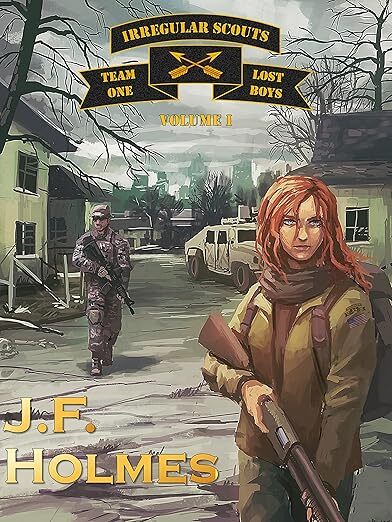
When the plague hit in 2016, civilisation fell fast.
For National Guard sergeant Nick Agostine, the nightmare began at the barricades—and never let up.
Months after the collapse, a crashed helicopter and a chance rescue pull him back into a new kind of war.
Now part of a specialist unit, Nick leads Irregular Scout Team One through the ruins of New York State, making contact with survivors and eliminating the infected with tactical precision.
Combining military realism with apocalyptic horror, this is zombie fiction for fans of strategy, grit, and boots-on-the-ground action.
get your copy.Unsafe by Christopher Artinian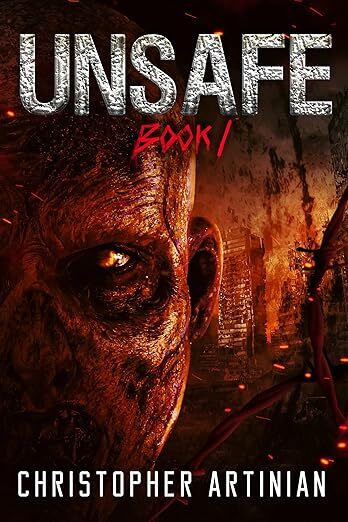
The virus spared the UK—until it didn’t.
Now the dead walk, and the streets are chaos.
Unsafe follows Deano and BD, a father and son with nothing in common, forced together by a nightmare they never saw coming.
As infection tears through the city, survival means learning to trust each other—fast.
Tense, emotional, and brutally paced, this is zombie horror with a deeply human core.
Set against the backdrop of a collapsing Britain, Unsafe delivers a gripping story of family, fear, and the fight to make it through just one more day.
get your copy.The Best Zombie Books Don’t Just Scare—They Stay With YouWhether it’s the raw desperation of Punks Versus Zombies, the tactical grit of The Remaining, or the suburban satire of Z-Burbia, the best zombie books don’t just pit the living against the dead—they ask what we’re willing to do to survive.
They explore grief, loyalty, fear, and hope in a world stripped bare.
Every story on this list is more than blood and bites.
They’re stories about people.
And that’s what makes them unforgettable.
If you’re hungry for more, you won’t want to miss this free collection…
Get Humans Versus Zombies – Free Zombie Fiction From Jon Cronshaw
Want more character-driven, emotionally charged zombie stories?
Humans Versus Zombies is a free collection of interconnected tales that dig into the heart of what it means to survive the end of the world.
Inside, you’ll find:
A mother trying to protect her toddler as Philadelphia fallsA bus driver on his final shiftA pub full of strangers deciding who deserves to liveAt the centre is Niamh’s Journey, a gripping prequel to the Punks Versus Zombies series.
If you enjoy survival horror with real emotional weight, this one’s for you.
get your copy.Frequently Asked Questions About Zombie BooksWhat are the best zombie books to read right now?Some of the best zombie books to read at the moment include World War Z by Max Brooks, The Girl With All the Gifts by M.R. Carey, and Zone One by Colson Whitehead. These titles offer a mix of horror, character depth, and fresh takes on the undead genre.
Which zombie novels are must-reads for horror fans?If you’re a horror fan, don’t miss The Rising by Brian Keene, The Troop by Nick Cutter, and Feed by Mira Grant. These novels combine disturbing imagery with suspenseful storytelling that will satisfy seasoned horror readers.
Are there any new zombie books worth reading in 2025?Yes—2025 has already brought some exciting new releases in zombie fiction. Keep an eye out for indie authors pushing boundaries, and revisit updated editions or collected volumes from established series like Autumn by David Moody.
What’s the difference between zombie horror and post-apocalyptic fiction?Zombie horror focuses on the fear, suspense, and often gore associated with the undead, while post-apocalyptic fiction explores survival and society after a catastrophic event. Many zombie books blend both genres, but some lean more into one than the other.
Is World War Z still one of the top zombie books?Absolutely. World War Z remains a genre-defining novel thanks to its global scope, documentary-style narrative, and intelligent commentary on politics, survival, and humanity. It’s widely considered a modern classic.
What zombie books are similar to The Walking Dead?If you enjoy The Walking Dead, try Day by Day Armageddon by J.L. Bourne or Dead City by Joe McKinney. These series focus on survival, group dynamics, and the emotional cost of living through a zombie apocalypse.
Which zombie books are good for fans of fast-paced action?For non-stop action and cinematic pacing, check out Plague of the Dead by Z.A. Recht, Patient Zero by Jonathan Maberry, and Rot & Ruin—also by Maberry, which blends action with a coming-of-age arc.
Are there any zombie novels with strong character development?Yes. The Reapers Are the Angels by Alden Bell and The Girl With All the Gifts by M.R. Carey both feature deeply developed protagonists and explore their internal struggles as much as external threats.
What’s the best zombie book series of all time?Opinions vary, but many readers cite The Morningstar Strain trilogy by Z.A. Recht, The Remaining series by D.J. Molles, and Newsflesh by Mira Grant among the best zombie series for sustained world-building and character arcs.
Can I read zombie books even if I don’t usually like horror?Definitely. Many zombie novels lean more into drama, sci-fi, or social commentary than outright horror. Start with Warm Bodies by Isaac Marion or Zone One by Colson Whitehead for more literary or genre-bending entries.
Note: This post includes affiliate links.
The Best Zombie Books You Need to Read Right Now
If you’re looking for the best zombie books to add to your reading list, you’re in the right place.
Whether you’re a horror fan, a post-apocalyptic enthusiast, or just love a gripping survival tale, zombie fiction offers some of the most thrilling and thought-provoking stories in the genre.
This list gathers the essential zombie reads—stories that go beyond brain-munching and body counts to show us what it means to be human when the world falls apart.
The appeal of zombie literature isn’t just the gore or the fear of the infected.
It’s the pressure-cooker situations.
The moral dilemmas.
The fight to hold on to decency in a world where the rules have changed.
The best zombie novels aren’t about the dead—they’re about the living.
The desperate parents, the hardened survivors, the unlikely heroes trying to protect what little remains.
If you’re searching for the greatest zombie books of all time, modern classics, or underrated gems, this guide has you covered.
Let’s get stuck in.
Punks Versus Zombies by Jon Cronshaw
When the zombie outbreak hits mid-gig, punk guitarist Tommy is stranded 3,000 miles from home.
With his band falling apart and the roads swarming, he sets out to reach his girlfriend and son in Philadelphia—if they’re still alive.
Armed with a battered van and raw determination, Tommy fights through a dying America.
Punks Versus Zombies is a tense, emotional survival story packed with punk energy, family stakes, and relentless danger.
Perfect for fans of The Walking Dead and Train to Busan, this is zombie fiction with heart—and teeth.
get your copy.Mountain Man by Keith C. Blackmore
Two years after the fall, Gus Berry survives alone in a mountain stronghold—armed with a shotgun, a samurai bat, and a hangover.
Each supply run into the frozen, undead-infested suburbs below could be his last.
But isolation doesn’t last forever.
When Gus meets another survivor, he learns the true threat may not be the dead, but the living.
Mountain Man is a gritty, darkly funny survival horror novel with sharp character work and brutal tension.
Fans of The Last of Us and I Am Legend will find this post-apocalyptic tale both chilling and oddly relatable.
get your copy.Outbreak by Joshua C. Chadd
When the dead rise, two brothers set out on a desperate mission to rescue their parents in Nebraska—armed with a plan, but no real idea what they’re up against.
Meanwhile, Emmett Wolfe races to save his daughter and ex-wife as the infection spreads across America.
Outbreak is a fast-paced, emotionally charged zombie novel that explores how far people will go for family when the world collapses.
With survival plans falling apart and danger around every corner, it’s a gripping start to a series perfect for fans of The Walking Dead and Zombie Fallout.
get your copy.Zombie Fallout by Mark Tufo
A rushed vaccine. A deadly flu. Then the dead got back up.
Zombie Fallout kicks off Mark Tufo’s long-running series with a blend of horror, action, and dark comedy, following self-declared survivalist Michael Talbot as he fights to protect his family in a world gone mad.
As the undead rise, Mike relies on sarcasm, instincts, and sheer stubbornness to keep those he loves alive.
But the virus hides darker secrets—some beyond explanation.
Fast-paced, funny, and surprisingly heartfelt, this is a cult favourite among zombie fans.
Perfect for readers who enjoy apocalyptic chaos with a side of wisecracks.
get your copy.Zombie Rules by David Achord
Zach Gunderson thought his life couldn’t get worse—then came the zombies.
Guided by Rick, a grizzled Vietnam vet and doomsday prepper, Zach retreats to a remote farm just as society collapses.
But surviving the undead is only the beginning.
As the plague spreads, the real threat emerges: desperate people willing to do anything to stay alive.
Zombie Rules blends gritty survival, sharp dialogue, and a coming-of-age arc with real stakes.
It’s a gripping start to a series where the rules have changed—and only the ruthless endure.
Perfect for fans of grounded, character-led zombie fiction.
get your copy.Day by Day Armageddon by J.L. Bourne
Told through the handwritten journal of a lone survivor, Day by Day Armageddon offers an intimate, chilling account of one man’s fight to stay alive as the world falls to the undead.
With every entry, the tension builds.
From the first signs of collapse to the claustrophobic horror of a besieged bunker, the narrator must make brutal choices—each one a line between survival and damnation.
Written in a stark, immediate style, this is zombie horror at its most personal and relentless.
A must-read for fans of military survival and end-of-the-world realism.
get your copy.The Apocalypse by Peter Meredith
When greed, terror, and pure bad luck collide, civilisation collapses—and the dead rise.
The Apocalypse, the first book in The Undead World series, throws readers into a relentless viral nightmare where only the lucky, the ruthless, or the unbreakable survive.
Told through a cast of gritty, compelling characters, this is zombie fiction at full tilt—fast-paced, brutal, and unflinching.
With no heroes, no safety, and no guarantees, every page is a fight for survival.
Perfect for readers who want high-stakes action, raw emotion, and a story that doesn’t flinch from the darkest corners of the undead world.
get your copy.Dark Recollections by Chris Philbrook
When the world ends, Adrian Ring starts talking—to his laptop.
In Dark Recollections, the first entry in Adrian’s Undead Diary, Adrian documents his day-to-day struggle to survive the zombie apocalypse while grappling with guilt, loneliness, and the threat of unhinged survivors.
He rescues his cat, shoots his mum, and holes up in an abandoned prep school as the world outside burns.
Told in journal format, this gripping, character-focused series blends dark humour, emotional depth, and brutal action.
Perfect for fans who like their zombie fiction with heart, honesty, and a body count.
get your copy.Z-Burbia by Jake Bible
When zombies hit the suburbs, most people panic.
In Whispering Pines, they call the Home Owners Association.
Z-Burbia throws you into a post-apocalyptic nightmare laced with gore, grit, and relentless sarcasm.
Jace Stanford just wants to keep his family alive—but between flesh-eating hordes and the petty tyranny of HOA rules, survival’s never simple.
With cannibals, chaos, and more bad jokes than bullets, this series is zombie horror with a twisted suburban spin.
Perfect for readers who like their apocalypse brutal, bloody, and bizarrely funny.
get your copy.The Remaining by D.J. Molles
Hidden in a bunker beneath the ruins of America, one soldier receives his final orders: survive, rescue, rebuild.
In The Remaining, a deadly bacterium has turned most of the population into savage, hyper-violent predators.
Now it’s time for Captain Lee Harden to leave his shelter and face the chaos above.
Armed with military training and a mission that may be humanity’s last hope, Lee steps into a world where survival is war—and every decision counts.
Fast, tense, and unflinchingly brutal, this is a must-read for fans of military thrillers and post-apocalyptic survival.
get your copy.The Prisoner of the Dead by Megan Mackie
In a world overrun by the undead, freedom is rare—and hope, even rarer.
After a brutal killing, Baron ends up imprisoned and bound to Thalia, a mysterious woman with knowledge that could end the zombie plague forever.
The infection, she reveals, is part of a repeating cycle—one she may be able to break.
But survival won’t come easy.
The Prisoner of the Dead blends post-apocalyptic grit with speculative intrigue, offering a fresh twist on zombie lore through layered characters and high-stakes mystery.
Ideal for readers who crave depth, danger, and a glimmer of redemption.
get your copy.Slow Burn: Zero Day by Bobby Adair
Zed Zane just wanted to borrow rent money.
Instead, he walked into a house full of blood and a world beginning to collapse.
Bitten during a brutal attack by his infected stepfather, Zed is arrested for murder—until society crumbles and he’s forced back onto the streets.
Now, with the infection in his veins, he’s stuck between two worlds: feared by the living, hunted by the dead.
Slow Burn: Zero Day delivers a gritty, fast-paced zombie survival story with a unique twist—what if the infection doesn’t kill you, but changes you?
Perfect for fans of flawed heroes and slow-building dread.
get your copy.This Rotten World by Jacy Morris
The end doesn’t come quietly.
Set in Portland, Oregon, This Rotten World drops readers into the chaos of the first night of the outbreak—when everything unravels and no one is safe.
Told through the eyes of eight ordinary people, this novel captures the raw panic, violence, and confusion of society’s collapse in real time.
Forget time jumps and tidy explanations—this story lives in the downfall, dragging you through every scream, every bite, every brutal turn.
Gritty, unflinching, and immersive, it’s perfect for readers who want to feel the outbreak—not just read about it.
get your copy.Zombie Road by David A. Simpson
Gunny just wanted a quiet coffee.
Instead, he’s trapped in a truck stop surrounded by the dead—and the living aren’t much better.
A veteran turned long-haul driver, Gunny joins a ragtag group of survivors facing a brutal decision: stay put and starve, or hit the road and risk everything.
With 2,000 miles of carnage between them and safety, Zombie Road is a relentless ride through the apocalypse.
Fast, bloody, and packed with grit, it’s a story of ordinary people pushed to the edge.
Perfect for fans of action-heavy, no-holds-barred zombie survival.
get your copy.Irregular Scout Team One: Volume 1 by J.F. Holmes
When the plague hit in 2016, civilisation fell fast.
For National Guard sergeant Nick Agostine, the nightmare began at the barricades—and never let up.
Months after the collapse, a crashed helicopter and a chance rescue pull him back into a new kind of war.
Now part of a specialist unit, Nick leads Irregular Scout Team One through the ruins of New York State, making contact with survivors and eliminating the infected with tactical precision.
Combining military realism with apocalyptic horror, this is zombie fiction for fans of strategy, grit, and boots-on-the-ground action.
get your copy.Unsafe by Christopher Artinian
The virus spared the UK—until it didn’t.
Now the dead walk, and the streets are chaos.
Unsafe follows Deano and BD, a father and son with nothing in common, forced together by a nightmare they never saw coming.
As infection tears through the city, survival means learning to trust each other—fast.
Tense, emotional, and brutally paced, this is zombie horror with a deeply human core.
Set against the backdrop of a collapsing Britain, Unsafe delivers a gripping story of family, fear, and the fight to make it through just one more day.
get your copy.The Best Zombie Books Don’t Just Scare—They Stay With YouWhether it’s the raw desperation of Punks Versus Zombies, the tactical grit of The Remaining, or the suburban satire of Z-Burbia, the best zombie books don’t just pit the living against the dead—they ask what we’re willing to do to survive.
They explore grief, loyalty, fear, and hope in a world stripped bare.
Every story on this list is more than blood and bites.
They’re stories about people.
And that’s what makes them unforgettable.
If you’re hungry for more, you won’t want to miss this free collection…
Get Humans Versus Zombies – Free Zombie Fiction From Jon Cronshaw
Want more character-driven, emotionally charged zombie stories?
Humans Versus Zombies is a free collection of interconnected tales that dig into the heart of what it means to survive the end of the world.
Inside, you’ll find:
A mother trying to protect her toddler as Philadelphia fallsA bus driver on his final shiftA pub full of strangers deciding who deserves to liveAt the centre is Niamh’s Journey, a gripping prequel to the Punks Versus Zombies series.
If you enjoy survival horror with real emotional weight, this one’s for you.
get your copy.Note: This post includes affiliate links.
The post The Best Zombie Books You Need to Read Right Now appeared first on Jon Cronshaw - The King of Nobledark.
New Zombie Trilogy Drops September 1 – Pre-Order Now
I’m thrilled to announce that Punks Versus Zombies is officially launching on September 1—and I’m not just releasing one book.
I’m dropping the entire zombie-fuelled trilogy in one go.
That’s right—Punks Versus Zombies, Undead Anarchy, and Punk’s Not Dead will all be available from day one.
This is a gritty, emotional survival horror story about loyalty, family, and DIY ethics in a dying world.
It’s everything I love about the zombie genre—tight character drama, visceral stakes, and a soundtrack of rage and resilience.
Here’s the deal:
Book one, Punks Versus Zombies, is just 99p/99c on Kindle for a limited time (regular price £4.99/$4.99).All three books are available now for pre-order.The price will go up after launch, so now’s the best time to grab them.If you enjoy the tension of The Walking Dead, the chaos of Train to Busan, or you just want a zombie story with bite, this one’s for you.
Pre-order now and be ready to binge the entire trilogy on September 1.
 Get your copy.
Get your copy.The post New Zombie Trilogy Drops September 1 – Pre-Order Now appeared first on Jon Cronshaw - The King of Nobledark.
June 23, 2025
Strictly Sealed Ecclesiastical Correspondence — For Temple Eyes Only
Brauncliff Citadel, Outer Reach
Third Moon of Stormtide, 3E.743
Your Holiness,
May the Four keep your path steady.
I write from the edge of our blessed Empire with troubling news—unsettling not only in content but in implication. What I describe here has passed beyond the threshold of sailor’s tale or weatherborn misfortune. This is, I believe, a matter of ravenglass sorcery, and of a wyvern-bound nature too deep for any temple at Brauncliff to safely interpret.
Over the past fortnight, several vessels have reported sightings of a black-rigged ship moving along the mists of the Braun Sea. No colours. No name. Her sails are dull as ash, and her prow juts forward like a blade drawn halfway from a scabbard. Of itself, this would not concern me—pirates grow bold when winter currents shift.
But the crew.
Every account describes them standing motionless on deck. Not resting, not bracing—but fixed, eyes forward, as though one body shared among many forms. Witnesses swear that when one turned his head, the others followed in perfect synchrony. When the ship drifted near, some observers claimed their own thoughts began to echo—hearing words not spoken, memories they could not place, and a sensation of being watched from within.
One survivor carved spirals into his palms, claiming he was “mapping his way back to himself.” Another threw himself to the sea mid-prayer, muttering about “tides in the blood.”
At the prow of the vessel, secured in a cradle of blackened iron, is what multiple witnesses describe as a massive shard of ravenglass—coffin-sized, lightless, and thrumming with a resonance they felt more than heard. One Captain described it as “remembering him.”
Attempts to board or dispel have failed. A Circle-trained enchanter attempted to sever the ship’s link with known currents of enchantment. He now speaks in fractured birdsong and refuses to step indoors. Even the lesser rites of Unknotting bring no relief.
We believe the crew is psychically bound—not merely bewitched, but fully absorbed—by a wyvern working through the shard. If so, this represents an evolution of ravenglass manipulation we do not understand and cannot counter with known rites. The suggestion has even been made—though not lightly—that this could be the work of a Ravenglass node, not merely a shard: a self-sustaining focus of thought and will.
Your Holiness, we are unprepared.
I humbly request immediate guidance from the Great Temple. The local orders are unwilling to act. The Vigilant here are fractured, and we lack the authority to sanction action without temple sanction. We require the wisdom of the Hierophants and, if I may say so without overstepping, the insight of the Guardians—if they are indeed still known to your circles.
This ship does not attack. It does not speak. It only moves through the fog, crewed by silence and the echo of will not its own.
And it is watching.
With reverence and urgency,
Archivist Dern Halveth
Brauncliff Citadel, Outer Reach Authority

The post Strictly Sealed Ecclesiastical Correspondence — For Temple Eyes Only appeared first on Jon Cronshaw - The King of Nobledark.
June 21, 2025
Nobledark Fantasy Explained + The Best Books to Read First
What Is Nobledark Fantasy?
If grimdark is about watching the world burn, and noblebright is about believing everything will turn out fine—nobledark sits bloody and bruised in the middle, still trying to do the right thing.
It’s a fantasy subgenre built on grit, hope, and hard choices. The worlds are harsh. The odds are stacked. The heroes? Often flawed, broken, or compromised—but they haven’t given up. Not yet.
Nobledark is raw and unflinching, like grimdark—but without the cynicism. It doesn’t sneer at the idea of doing good. Nor does it retreat into the comforting certainties or religious optimism of noblebright.
Instead, nobledark stories ask: What does heroism look like when everything’s already gone wrong?
A nobledark protagonist might fail. They might lose everything. But they still try. They carry a strong moral compass, even if it’s cracked. And when hope comes, it’s earned.
This is fantasy for readers who want their hearts broken and mended in the same chapter. For those who believe that honour matters, even when the world stops rewarding it.
So if you’re tired of nihilism, but allergic to idealism—
Welcome to nobledark.
We’ve been expecting you.
Essential Nobledark Reads: Where to BeginNow that you know what nobledark is, you might be wondering where to find stories that truly embody it.
These are the books where hope claws its way through blood and ash. Where honour still matters—even if it costs everything. Whether you’re new to the genre or looking to sharpen your reading blade, here are some must-reads that capture the heart, grit, and raw moral weight of nobledark fantasy.
The Fall of Wolfsbane (Ravenglass Legends, Book 1) by Jon Cronshaw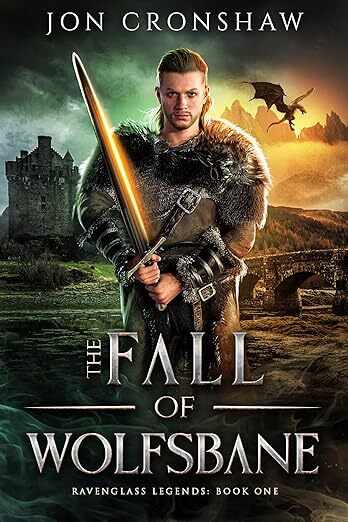
They came with fire and banners. By nightfall, Ragnar Wolfsbane had lost his father, his homeland, and his freedom.
Held hostage by the very Empire that razed his world, Ragnar is forced to navigate court politics, dangerous alliances, and the slow erosion of his own hatred. A brutal, emotionally charged story of loyalty, identity, and survival, The Fall of Wolfsbane asks what happens when the hero is raised among his enemies—and whether he can stay true to himself.
A gripping entry point to the Ravenglass Universe, and a defining work of nobledark fantasy.
Get your copy.In Solitude’s Shadow (Empire of Ruin Saga Book 1) by David Green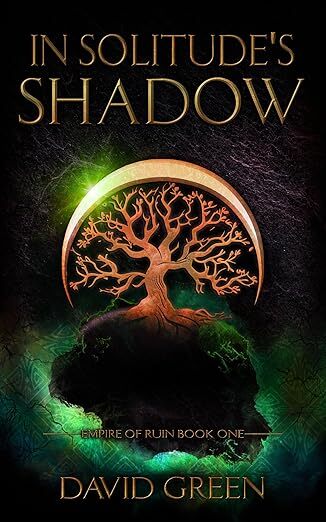
In an empire built on blood and silence, the old truths refuse to stay buried. As Emperor Locke wages a genocidal war using enslaved mages known as Sparkers, distant fires begin to kindle.
At the ancient citadel of Solitude, exiled Sparkers watch over a threat long thought dormant. Zanna Alpenwood prepares a new apprentice while grieving the daughter she lost to the Empire’s cause. That daughter, Calene, now a soldier of the regime, uncovers secrets that shatter her loyalty. And in the capital, schemer Kade Besem struggles to keep control as the empire begins to fracture from within.
In Solitude’s Shadow is sweeping, brutal nobledark fantasy at its finest—layered with political intrigue, fraught relationships, and a world on the brink of
collapse. When history roars back to life, no one stands unscathed.
get your copy.Age of Assassins (The Wounded Kingdom Book 1) by RJ Barker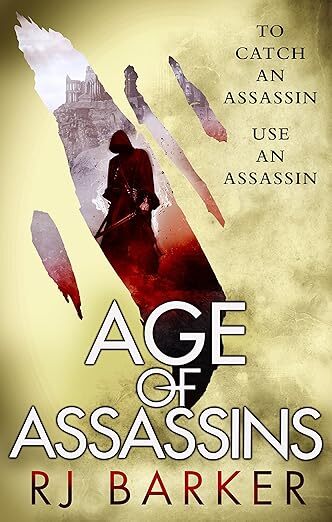
Apprentice assassin Girton Club-Foot was trained to end lives, not save them. But when he and his master are tasked with protecting a prince from a hidden killer, Girton is thrust into a world of political treachery, dangerous loyalties, and a kingdom teetering on the edge of civil war.
As conspiracies tighten around the royal court, Girton must confront not only blades and lies, but also what it means to choose mercy over murder—and to carry honour in a profession built on shadows.
Age of Assassins is a quintessential nobledark tale: emotionally rich, morally complex, and set in a world where doing the right thing may cost more than a clean kill.
Get Your Copy.Toric’s Dagger (The Weapon Takers Saga Book 1) by Jamie Edmundson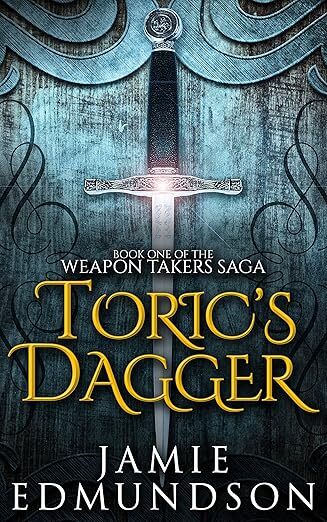
Toric’s Dagger is more than just a stolen relic—it’s the key to a conflict that could tear kingdoms apart.
Twins Belwynn and Soren lead a desperate retrieval mission, caught between mercenaries, fanatics, and power-hungry sorcerers. With Soren’s unstable magic and their rare telepathic bond as their only true advantages, the pair are forced to question every alliance as empires crumble around them.
Epic in scope and grounded in moral uncertainty, Toric’s Dagger blends classic fantasy with nobledark grit—where the right path is rarely the easy one, and sacrifice is never simple.
get your copy.A Breaking of Realms (Realm Breaker Book 1) by Jasmine Young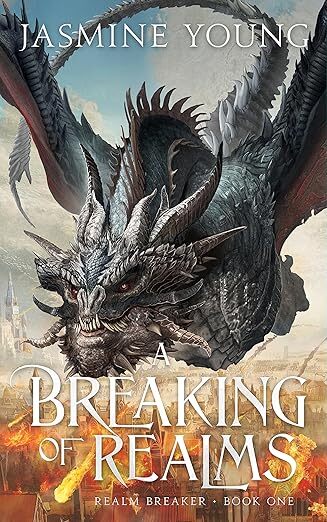
In Elondria, dragon riders are forged through power, politics, and obedience. Skálda Branwright wants nothing more than to rise from obscurity and claim her place—until a dragon from another world crashes into her path and upends everything.
To protect the hatchling, Skálda must break the most sacred laws of her realm, betray her nation, and challenge the elven architects of the rider system itself. But what begins as an act of defiance quickly becomes something greater—a war against a regime that turns riders into tools and kingdoms into playthings.
With brutal dragons, ruthless elves, and a heroine whose resolve is as sharp as her choices are painful, A Breaking of Realms is nobledark at its fiercest: ambitious, bloody, and burning with the kind of hope that gets people killed—but still burns anyway.
get your copy.The Curse of Chalion by Lois McMaster Bujold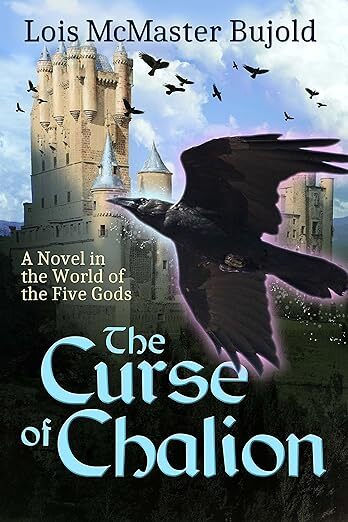
Cazaril returns from war and enslavement with nothing but scars and secrets. When appointed tutor to a royal heir, he hopes for peace—but court intrigue, divine meddling, and a centuries-old curse threaten everything.
Bujold delivers a rich, thoughtful nobledark fantasy where honour, sacrifice, and divine will collide. The Curse of Chalion explores redemption in a broken world where even miracles come with blood.
get your copy.Birthrights (Last Son of the Feromage Saga Book 1) by David Trotter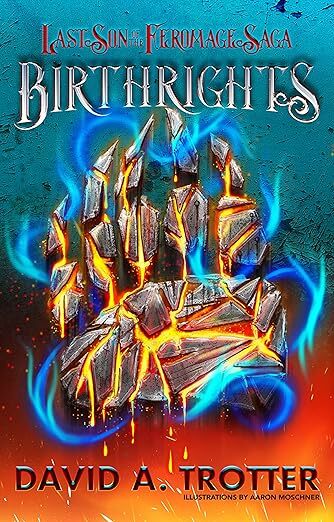
In the industrial sprawl of Tur’Mor, where the Church controls truth and the streets run on desperation, one broken warrior searches for meaning—and redemption.
As secrets fester beneath the city’s polished surface, a crew of outcasts rises from the slums, clashing with powers that would erase history itself. Birthrights weaves political corruption, forgotten magic, and inner reckoning into a gritty, character-driven nobledark tale where trust is rare, and hope is earned the hard way.
get your copy.Dream of the Sphere (The Sphere Saga Book 1) by Jay S. Willis
Dashira Eisenheart believes in tradition, duty, and the order meant to keep dangerous magic sealed away. But when she discovers her family isn’t on the same side of history, her world fractures.
Caught between her father’s sacred Brotherhood and her mother’s rebel cause, Dashira must navigate betrayal, truth, and the burden of legacy. As tensions explode and loyalties splinter, she’s forced to confront the cost of belief—and the danger of asking the wrong questions.
Dream of the Sphere delivers high-stakes conflict, moral complexity, and an unflinching look at how faith can become a battlefield. A bold entry in nobledark fantasy where the fight for what’s right might mean turning against everything you’ve ever known.
get your copy.The Goblin Emperor (The Chronicles of Ostreth) by Katherine Addison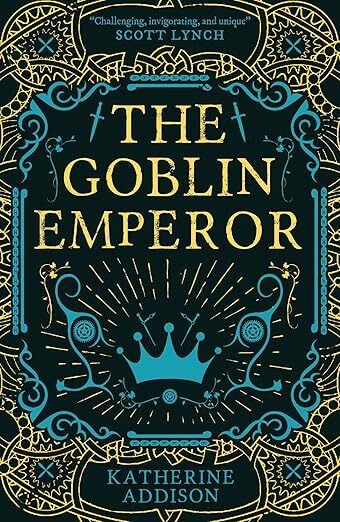
Thrust onto an imperial throne after the suspicious deaths of his royal family, half-goblin Maia must navigate a court that despises him.
Ill-prepared but determined, he fights to rule with kindness in a world shaped by cruelty.
While never bleak, The Goblin Emperor offers a clear nobledark tone—political, perilous, and heart-wrenching, with a protagonist who clings to decency in a system built to crush it.
get your copy.Witchslayer’s Scion (The Rogue Healer Book 1) by L.T. Getty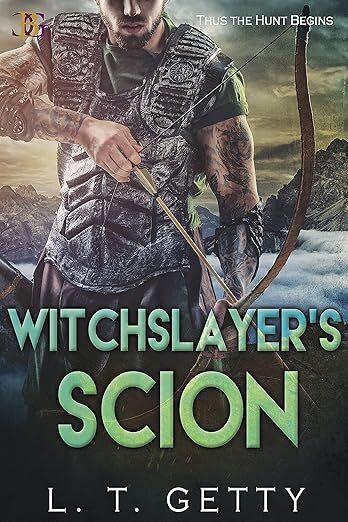
Koth was born with the rare ability to heal by touch—a gift that made his path in life seem fixed. But when a failed kidnapping becomes a ritual killing, that path shatters. Abandoning the healer’s role, Koth chooses vengeance.
His journey leads him into a world still scarred by ancient sorcery, where power and privilege hide darker ambitions. What begins as a hunt for justice spirals into a reckoning with forbidden magic, bloodline secrets, and the brutal truth behind the empires rising from the ashes.
Witchslayer’s Scion delivers classic nobledark fantasy: a flawed hero, a world that demands violence, and a quest that tests the line between justice and revenge.
get you copy.Death’s Disciple by Emma L. Adams
Once hailed as a hero, Captain Yala Palathar lost everything on an island mission that ended in blood and silence. Now, years later, her surviving squadmates are being hunted—and the truth about what really happened refuses to stay buried.
Forced out of exile and back into a city rotting from the inside, Yala confronts a corrupt monarchy, a secretive magical order, and the creeping dread of the very horrors that shattered her past. With mercenaries at her heels and whispers of divine retribution in the air, she must reckon with betrayal, grief, and unfinished war.
Death’s Disciple is a brutal, slow-burn nobledark fantasy where trauma lingers, justice is personal, and facing death might be the only way to reclaim honour.
get your copy.Desolate Dawn (Droughtbringer Book 1) by Kristen Kail Roberts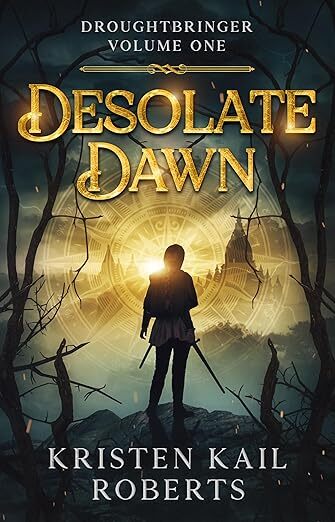
When treasure hunter Draya uncovers more than she bargained for beneath an ancient palace, she unleashes a prophecy that binds her fate to Nel, a devout soldier of the Order she’s spent her life avoiding.
Thrust together by cursed magic and hunted across a dying land, the pair must navigate cults, undead horrors, and the slow collapse of a world gripped by supernatural drought. As tension mounts between Draya’s rebellious instincts and Nel’s rigid ideals, both must confront the question: how far are they willing to bend before they break?
Desolate Dawn is a gritty, prophecy-laced nobledark fantasy where ancient evils stir, faith is tested, and unlikely allies must hold the line as darkness rises.
get your copy.The Poppy War by R.F. Kuang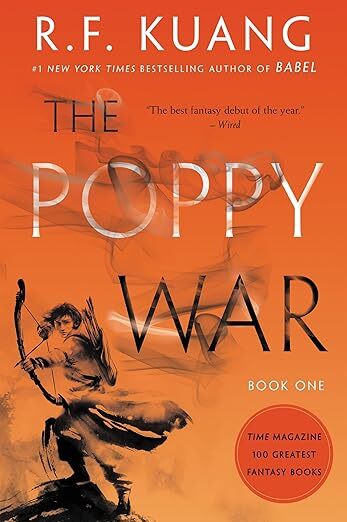
Rin rises from poverty to elite military school—and into a war that demands more than strategy.
Tapped into terrifying godlike powers, she must choose between survival, revenge, and the cost of becoming a weapon herself.
The Poppy War is visceral, uncompromising, and steeped in moral horror.
Yet through it all, Rin fights with purpose, making this a standout in modern nobledark: unflinching but never empty.
get your copy.The Price of Power (The Price of Power Book 1) by Michael Michel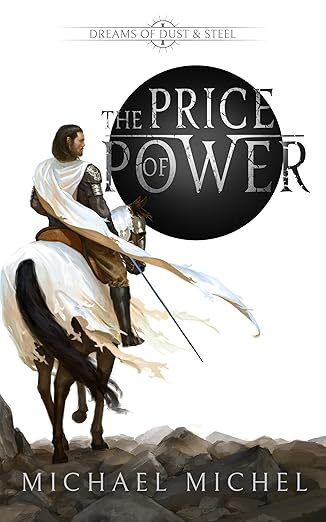
Prince Barodane was meant to save the kingdom. Instead, he destroyed a city, died a hero… and vanished.
Now the realm teeters on the edge. Ambitious nobles plot in silence, cults rise in the south, and a mad prophet threatens to unmake reality itself. At the centre of it all: a disgraced prince drowning in vice, an orphan torn between duty and love, and a seer who must choose between blood and fate.
The Price of Power delivers sweeping nobledark fantasy where salvation demands sacrifice, destiny offers no comfort, and even heroes must bleed to hold the line. Gritty, tragic, and unflinchingly human.
get your copy.Blood of Vengeance (Battleborn Mage Book 1) by Angel Haze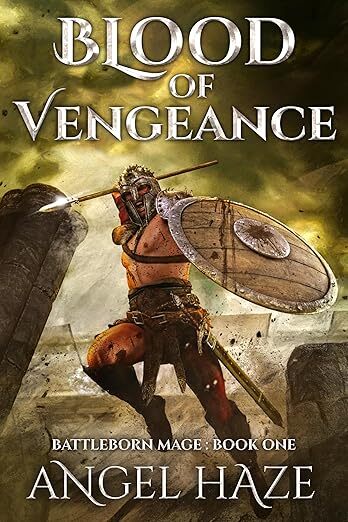
Killien was stolen from the streets and thrown into the arena—a gladiator forced to play the part of a ruthless killer for the prince’s entertainment. But beneath the blood and brutality lies a secret: Killien is no ordinary champion. He wields hidden magic, a forbidden edge that keeps him alive… for now.
When a wager forces him into a fight he cannot win, survival becomes more than a performance—it becomes rebellion. Surrounded by monsters, manipulators, and merciless masters, Killien must decide whether to keep playing the role they gave him—or carve out a new one in blood.
Blood of Vengeance is a brutal, magic-laced nobledark tale of vengeance, identity, and survival in a world where losing isn’t just death—it’s erasure.
get your copy.Dreamteller by K. D. Shade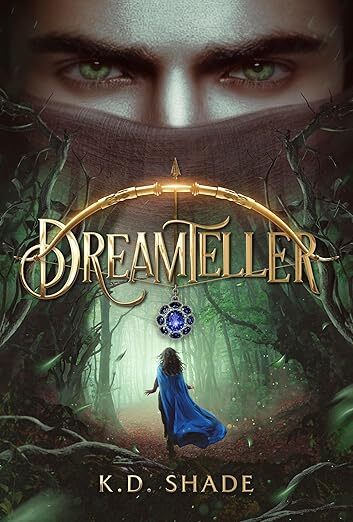
Lady Shannyn was bred for power, trained for rule—but no one prepared her for betrayal woven into her own legacy. When a vision of the past reveals a buried treachery, she’s thrust into a web of court intrigue, rebellion, and prophecy.
With masked assassins in the shadows and whispers of war in the palace halls, Shannyn must navigate the lies that built her world. A mysterious archer may hold the key to the truth—but trusting him could cost her everything.
Dreamteller is a rich, character-driven nobledark fantasy where secrets have teeth, and every revelation demands a sacrifice. Amidst masks, myths, and power plays, one young ruler must decide what kind of future is worth fighting for.
Get your copy.Legacy of the Brightwash (Tainted Dominion Book 1) by Krystle Matar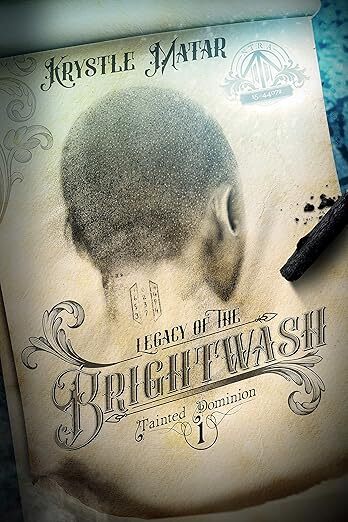
Tashué Blackwood once believed in the system. He upheld the law—even when it meant sending his own son to suffer for refusing to register as tainted. But after three years of guilt and silence, a mutilated child’s body washes up on the riverbank, and something inside him finally breaks.
As questions pile up and official silence turns to complicity, Tashué is forced to confront the rot at the heart of the Authority he once served. In a city that weaponises magic, buries its crimes, and punishes those who disobey, doing the right thing might be the most dangerous act of all.
Legacy of the Brightwash is a slow-burn, emotionally charged nobledark masterpiece—rich in nuance, steeped in moral conflict, and unafraid to ask what justice really costs.
get your copy.The Crimson Court (The Realm Reachers Book 1) by Brendan Noble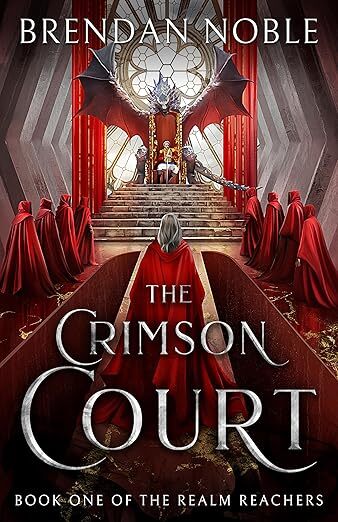
Kasia Niezik’s noble house has fallen, her father murdered by the very elites who rule from the shadows. To bring down the Crimson Court, she must do the unthinkable: join them.
Armed with forbidden magic and a burning need for vengeance, Kasia ventures into a world of masked loyalties, political subterfuge, and deadly glamour. But in a realm where every ally has an angle and every smile hides a blade, justice may demand more than she’s ready to give.
The Crimson Court is a fast-paced nobledark tale of infiltration, ambition, and fragile ideals in a world where power is everything—and revenge has a price.
get your copy.Why Nobledark MattersIn a genre often torn between grim nihilism and shining idealism, nobledark fantasy offers something different—something honest.
These stories don’t flinch from brutality or moral compromise, but they don’t surrender to it either.
They give us flawed heroes who fight anyway. Not because they’re destined to win, but because someone has to try.
Across the books in this list—whether indie gems or traditionally published epics—you’ll find worlds steeped in conflict, systems that crush, and characters who bleed for what they believe in.
You’ll find sacrifice, grit, betrayal, and doubt. But you’ll also find heart, courage, loyalty, and love.
Nobledark doesn’t offer comfort. It offers meaning.
And in times like these, that’s a story worth telling.
Ready for More Nobledark?Start your journey with a free copy of Blades of Wolfsbane—a Norse-inspired coming-of-age fantasy where grit, heart, and steel clash against tradition.
Born to fight. Trained to fail. Until he rewrote the rules.
Twelve-year-old Ragnar Wolfsbane defies a warrior culture that sees him as weak. With twin blades, a sharp mind, and the help of a mysterious wyvern, he must challenge everything to become the warrior no one expected.
 Claim your free copy now and discover where nobledark begins.
Claim your free copy now and discover where nobledark begins.
The post Nobledark Fantasy Explained + The Best Books to Read First appeared first on Jon Cronshaw - The King of Nobledark.
June 20, 2025
🎶 Admin Catch-Up & Nine Inch Nails Live! | Author Diary – June 20, 2025 📚✨
This week was mostly spent on admin tasks—the essential but less exciting side of the author life. From scheduling to organising releases, it’s been a practical sort of week.
The highlight, though, was seeing Nine Inch Nails live in Manchester! It was an incredible show with a set packed full of early album tracks—intense, loud, and absolutely brilliant.
Best of all, my back held up, so I’m hoping that means I’m finally over the worst of it and can get back into the writing groove soon.
The post 🎶 Admin Catch-Up & Nine Inch Nails Live! | Author Diary – June 20, 2025 📚✨ appeared first on Jon Cronshaw - The King of Nobledark.



